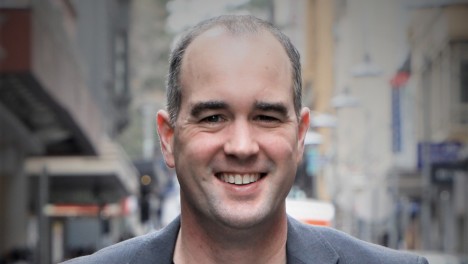Franking credit changes ‘won’t be the death of SMSFs’
Labor’s plans to remove refundable franking credits is a big concern for retirees, but with the latest ATO statistics indicating that almost 80 per cent of new SMSF members are under 55, the policy does not spell the end for SMSFs, says an industry consultant.
Smarter SMSF chief executive Aaron Dunn said there has been a lot of commentary about what impact Labor’s policy of removing refundable franking credits will have on retirees, especially those in SMSFs.
Based on estimates by the Parliamentary Budget Office, Labor’s franking credit measure will impact 840,000 individual taxpayers, 210,000 SMSFs and 2,300 APRA-regulated funds in the 2019–20 financial year.
While Labor’s policy proposal is a significant concern for SMSF trustees, it certainly doesn’t mean the end of SMSFs, he said, especially in light of recent ATO statistics which show that the number of younger SMSF trustees is on the rise.
The latest SMSF statistics released by the ATO indicate that during the March quarter, 79.8 per cent of the individuals establishing new funds were below the age of 55.
Mr Dunn said that the rate of younger entrants continues to climb, with the past two quarters of data published by the ATO showing that around two-thirds of SMSF entrants were under the age of 50.
Historically, the ATO statistics have indicated that around one in four new establishments were initiated by those under the age of 45, he said.
“We’re hearing a lot at the moment about the impact of this policy change with refundable franking credits and what that might mean in terms of members leaving the SMSF sector, but it doesn’t appear to be the case,” he said.
“A lot of commentary has been focused on how big of a problem the removal of franking credits will be for retirees, but that doesn’t mean that we’re going to fall off a cliff when it comes to SMSF generally and the data continues to support that.”
Many of the individuals under the age of 50, Mr Dunn explained, have been the benefactors of compulsory superannuation for most of their working life and they’re now getting to the point where they’re starting to understand the importance of looking at the level of superannuation that they have.
“They also have a quantum of money which may be sufficient for them to start an SMSF and take a greater level of control and interest in the way that they’re doing things,” he said.
He did acknowledge, however, that the attractiveness of SMSFs is influenced by a range of factors, with the idea of owning property in a super fund an appealing proposition for many younger SMSF members.
“So, there may be potential issues in that respect if Labor look to repeal the LRBA legislation,” he noted.
For now, there continues to be continued growth in this younger demographic, he said, which is something that SMSF professionals may wont to think about in terms of their value proposition.
“The ways you’re going to attract those types of people is going to be very different to the types of conversations that you’re having with your older clients,” he explained.
The ATO’s quarterly statistical report also revealed some other important figures on SMSFs, with the total number of SMSFs now sitting at 598,429, while the total number of SMSF members has now climbed to 1,129,542.
The statistics also showed that total estimated amount of assets in SMSFs is $747 billion.
The top asset types held by SMSFs by value are listed shares and cash and term deposits, accounting for 30 per cent and 23 per cent of total estimated SMSF assets, respectively, the ATO said.

Miranda Brownlee
Miranda Brownlee is the deputy editor of SMSF Adviser, which is the leading source of news, strategy and educational content for professionals working in the SMSF sector.
Since joining the team in 2014, Miranda has been responsible for breaking some of the biggest superannuation stories in Australia, and has reported extensively on technical strategy and legislative updates.
Miranda also has broad business and financial services reporting experience, having written for titles including Investor Daily, ifa and Accountants Daily.
 Disagree this is the death of SMSF sector0
Disagree this is the death of SMSF sector0 oh yes, because the SMSF sector wasn't growing before this policy came along? Seriously this "sky is falling" BS is too much. get over it, the policy will make for a more disciplined and stable share market more in line with international equities markets. This in turn will make our market more attractive for foreign investment increasing the value of Australian companies.0
oh yes, because the SMSF sector wasn't growing before this policy came along? Seriously this "sky is falling" BS is too much. get over it, the policy will make for a more disciplined and stable share market more in line with international equities markets. This in turn will make our market more attractive for foreign investment increasing the value of Australian companies.0
 Of those SMSFs which are affected, it’s those in the ‘top end of town’ who are affected the least as most of their funds will be in accumulation mode. There are also options available to the ‘top end of town’ to minimize the loss of franking credit refunds. eg where there are adult children in the fund the children could salary sacrifice to the max. That will save more tax than the 15% payable by the fund. The parents can then top up the children’s net pay if necessary. This ‘work around’ is not really an option for those at the lower end and is another reason why they are the hardest hit.0
Of those SMSFs which are affected, it’s those in the ‘top end of town’ who are affected the least as most of their funds will be in accumulation mode. There are also options available to the ‘top end of town’ to minimize the loss of franking credit refunds. eg where there are adult children in the fund the children could salary sacrifice to the max. That will save more tax than the 15% payable by the fund. The parents can then top up the children’s net pay if necessary. This ‘work around’ is not really an option for those at the lower end and is another reason why they are the hardest hit.0 so!
so!
im 59yrs old, my wife is 56yrs old.
im going to retire at 62/63yrs old, my wife at 60yrs old but she will casual teach when she feels like it.
we have no mortgage
we have had a SMSF for last 15yrs, we will be well under the $1.6M when we retire.
does this mean we will wear the brunt of the changes??
im ok with the Labor party changing it, I just want to know if I'm one of the small number affected??0 1. You will be effected if you did not have a member receiving one of the prescribed got pensions.
1. You will be effected if you did not have a member receiving one of the prescribed got pensions.
2. Where did you get small numbers effected? The numbers effected are huge, the amounts they are effected by vary greatly and most don’t know it yet. They will get that surprise the first tax return after the law changes.
0
 Don’t agree. It’s the death of pension mode0
Don’t agree. It’s the death of pension mode0 TBAR and $1.6m cap had far greater impact on SMSFs and the industry didn't cry a river, nor did the industry cry for the 600k pensions that were lost as a result of LNP policy changes. Just a lot of crocodile tears for a tax boondoggle about to be nixed by Labor that should never have been doled out in the first place. SMSFs will move on and simply readjust their assets classes. Will take all of 2-3 months and the benefits to the country will be long standing. Seriously ppl, grow up!0
TBAR and $1.6m cap had far greater impact on SMSFs and the industry didn't cry a river, nor did the industry cry for the 600k pensions that were lost as a result of LNP policy changes. Just a lot of crocodile tears for a tax boondoggle about to be nixed by Labor that should never have been doled out in the first place. SMSFs will move on and simply readjust their assets classes. Will take all of 2-3 months and the benefits to the country will be long standing. Seriously ppl, grow up!0 Most people didn’t have such large pensions. If Shorten were honest he would say the exempt current pension income should be limited to a tax free threshold. But he’s a greedy polly snd wants 30% on the lot. All he will do is make sure Australian companies are owned by foreigners - and then he will bitch about that. Stuff him, there are ways to bypass this envy grab.0
Most people didn’t have such large pensions. If Shorten were honest he would say the exempt current pension income should be limited to a tax free threshold. But he’s a greedy polly snd wants 30% on the lot. All he will do is make sure Australian companies are owned by foreigners - and then he will bitch about that. Stuff him, there are ways to bypass this envy grab.0 Interesting idea. Something along these lines would be much fairer in the sense that it would affect equally those in SMSFs and those in public offer funds.0
Interesting idea. Something along these lines would be much fairer in the sense that it would affect equally those in SMSFs and those in public offer funds.0








